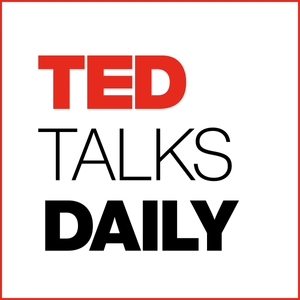
14 – Amazon HQ2 / CA wildfires / Genuine community engagement
11/21/18 • 59 min
Today is a bit of a Thanksgiving grab-bag. Kevin and Jordan discuss:
- what cities (of any size) can learn from the Amazon HQ2 contest about economic development and “being your best you” [1:10]
- what the California wildfires should be telling cities about the implications of their development patterns [19:20]
- whether “criticize then commit” is a philosophy city leaders can employ in citizen engagement [30:20]
We also take a few moments at the end [50:00] to let you know about a few cool things we’re working on.
- You can sign up for our brand-new Cultivate Journal, a monthly roundup of our best podcast episodes, written pieces, things we’ve read, and upcoming live events.
- Join us on Friday, Nov. 30 [THIS IS A NEW DATE!], for a free live webinar: Dollars and Sense: How to Cultivate (Real) Fiscal Sustainability + Community Engagement
- In 2019 we’re launching our Go Cultivate! Online Community. If you share our goal of building and managing cities in a more collaborative, fiscally-informed, and people-friendly fashion—and you want to discuss ways to deal with your city's challenges with like-minded peers—then this is your place. Sign up here and we’ll let you know when it’s officially open.
This podcast is brought to you by your friends at Verdunity. For more episodes, check out verdunity.com/go-cultivate.
(The music in this episode is from Custodian of Records)
Today is a bit of a Thanksgiving grab-bag. Kevin and Jordan discuss:
- what cities (of any size) can learn from the Amazon HQ2 contest about economic development and “being your best you” [1:10]
- what the California wildfires should be telling cities about the implications of their development patterns [19:20]
- whether “criticize then commit” is a philosophy city leaders can employ in citizen engagement [30:20]
We also take a few moments at the end [50:00] to let you know about a few cool things we’re working on.
- You can sign up for our brand-new Cultivate Journal, a monthly roundup of our best podcast episodes, written pieces, things we’ve read, and upcoming live events.
- Join us on Friday, Nov. 30 [THIS IS A NEW DATE!], for a free live webinar: Dollars and Sense: How to Cultivate (Real) Fiscal Sustainability + Community Engagement
- In 2019 we’re launching our Go Cultivate! Online Community. If you share our goal of building and managing cities in a more collaborative, fiscally-informed, and people-friendly fashion—and you want to discuss ways to deal with your city's challenges with like-minded peers—then this is your place. Sign up here and we’ll let you know when it’s officially open.
This podcast is brought to you by your friends at Verdunity. For more episodes, check out verdunity.com/go-cultivate.
(The music in this episode is from Custodian of Records)
Previous Episode

13 – Is fast growth a bad thing?
This is the first of a short series on city growth. Are there good ways or bad ways to grow? In this episode, we're asking whether there is such a thing as growing too fast or too slow.
Jordan speaks with Verdunity's Felix Landry about both the financial and social/cultural implications of fast growth vs. slow growth. We discuss the ways building standards can help or hurt, what it means to love a place, whether cities have knobs that can speed up growth or slow it down, whether it matters that you build a whole block out at once or over time, why scapegoating renters is off-base, and much more.
Have thoughts on this discussion? We want to hear from you. Email us: [email protected].
The Go Cultivate! podcast is a project of Verdunity. Learn more at verdunity.com.
(The music in this episode is from Custodian of Records.)
Next Episode

15 – Is debt a bad thing for cities?
[Some of you may have had a sound issue at the beginning of this podcast. We've fixed it but it still might show up for some listeners. Sorry about that!]
This is the second of a short series on city growth. Are there good ways or bad ways to grow? In this episode, we're asking: What should a city's relationship with debt look like? Are there bad debts? Are there good debts for a city to take on?
Felix Landry (Verdunity's resident city planner and data geek) is back on this week's episode to talk with Jordan about the following:
- Can we say that taking on debt is good or bad, whether in personal life or as a city using tax dollars?
- What are most cities currently using debt to finance?
- Are there types of debt that are more risky than others? Are some uses of debt a better bet?
- How does a city's development pattern increase or decrease its likelihood of needing to take on debt? And how does debt inform the city's land use pattern?
- How does debt play into a city's economic development scheme?
It's a full episode, and despite its length, we still didn't get to cover nearly as much as there is to say about the subject of debt and cities. We'd love for you to inform the way this discussion progresses. Do you have thoughts? We want to hear from you. Email us: [email protected].
The Go Cultivate! podcast is a project of Verdunity. Learn more at verdunity.com.
(The music in this episode is from Custodian of Records.)
If you like this episode you’ll love
Episode Comments
Generate a badge
Get a badge for your website that links back to this episode
<a href="https://goodpods.com/podcasts/go-cultivate-47258/14-amazon-hq2-ca-wildfires-genuine-community-engagement-8574982"> <img src="https://storage.googleapis.com/goodpods-images-bucket/badges/generic-badge-1.svg" alt="listen to 14 – amazon hq2 / ca wildfires / genuine community engagement on goodpods" style="width: 225px" /> </a>
Copy




